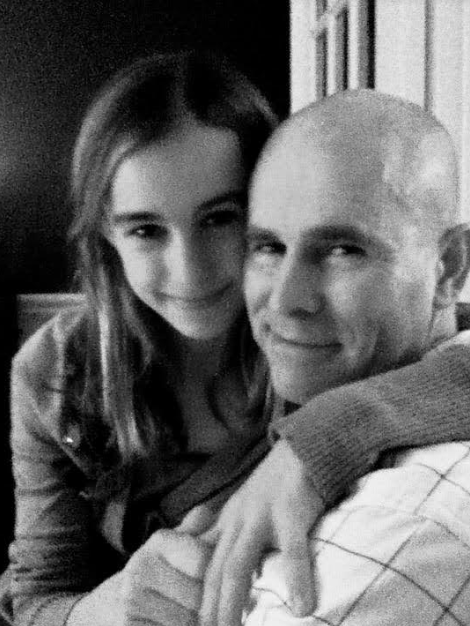
When the Storm Hits, We Grab an Umbrella, But Rarely Ask if We’re the Thunder
Most parents react to teen behavior—but few reflect on it. In our emotional literacy program, just 5% of parents did the inner work, and their teens felt the difference. If your child is shutting down, it may not be defiance—it may be a mirror. Learn how emotional regulation and better communication can transform your relationship with your teen.

Your Teen Doesn’t Want a Therapist. They Want a Guide.
Teens don’t always want therapy—they want someone who gets them. Discover the neuroscience of mentorship, why it works, and how MentorWell is helping teens build resilience through connection, not correction.

Therapy Digs Into Your Past. Mentorship Helps You Build What’s Next
Is mentorship a substitute for therapy? Not even close. Here's why both can be essential for teen emotional wellness—and how The Mentor Well bridges the gap with connection, confidence, and care.

Why Mentorship Is the Missing Link for the ‘Failure to Launch’ Generation
Still supporting your adult child long after “just until I get back on my feet”? You're not alone—and you're not failing. When love turns into a standstill, it’s time for a new kind of support. Discover how mentorship helps stuck young adults find clarity, confidence, and direction—without the pressure. The move forward starts here.

What Your Teen Is Desperately Trying to Tell You (But Can’t)
Many teens say “I’m fine” when they’re struggling inside. This post shares a father’s raw story of losing his daughter and what he wishes he had understood sooner. Learn what “I don’t know” really means, how to connect with your teen before a crisis, and why mentorship can be the missing bridge. Support your teen’s mental health—before it’s too late.

The One Thing That Separates a Great Mentor from a Bad One
The one thing that separates a great mentor from a bad one? Alignment between words and actions. A great mentor doesn’t just give advice—they live it. They build trust, challenge you, and guide by example. They push when needed, listen when it matters, and stay in your corner when things get tough. If you want real growth, find a mentor who walks the walk—not just talks the talk.

The Reason Your Teen Won’t Talk to You (It’s Not What You Think)
Struggling to get your teen to talk? The real reason they stay silent isn’t what you think. Most teens shut down because they don’t feel emotionally safe—not because they don’t want to share. Learn how to ask better questions, avoid common mistakes, and create moments where real conversations happen. Master the game of teen communication and start winning their trust today.

Why Your Teen’s Rebellion Might Be the Best Thing for Your Relationship
Parenting a teen can feel like a battle, but what if their pushback isn’t rebellion, but growth? That first eye roll, that first "No". It’s not about defiance; it’s about independence. The challenge? Staying connected while giving them space to grow. A mentor can bridge the gap, offering guidance without the daily battles. Because the teenage years aren’t a war zone, they’re the foundation for their future.

The Hidden Opportunity Almost Every Parent Misses With Their Teen
Most parents see their teen’s push for independence as a challenge; arguments, questioning authority, emotional distance. But what if this phase was actually an opportunity? The Thriving Zone is a chance to build trust, connection, and resilience. A mentor can bridge the gap, easing tension while guiding teens toward confidence and growth. Don’t wait for problems—lean in before they start.

The Silent Struggles of Teens: How to Know When They’re Feeling Lost
Feeling lost doesn’t mean a teen is depressed or anxious. It’s often about lacking confidence, direction, or the ability to process emotions. Teens need guidance to navigate these challenges and build resilience. By recognizing the signs, offering support, and normalizing their emotions, parents can help them find their path. When needed, mentors, coaches, or therapists can provide additional guidance.

Mentorship Matters: This Wisdom Will Help Fast Track Your Career
A few weeks ago, I shared a post about my son Zac starting his career. Many of you offered guidance, including Hilton Barbour, who shared incredible advice and followed up with a brilliant email. His wisdom reminded me how powerful it is to share our experiences. Your guidance can shape future leaders, so don’t underestimate its impact. Thank you, Hilton, for inspiring Zac and many others.

The Hidden Truth About Rewards, Punishments, and Raising Resilient Kids
Parenting isn’t about control. It’s about connection. Shifting from punishment to partnership empowers teens to grow. By celebrating wins, listening deeply, and modeling resilience, we create trust instead of conflict. The Gap and the Gain teaches us to measure progress, not shortcomings, and reminds us: practice what you preach. Parenting success starts with fostering accountability, empathy, and love.